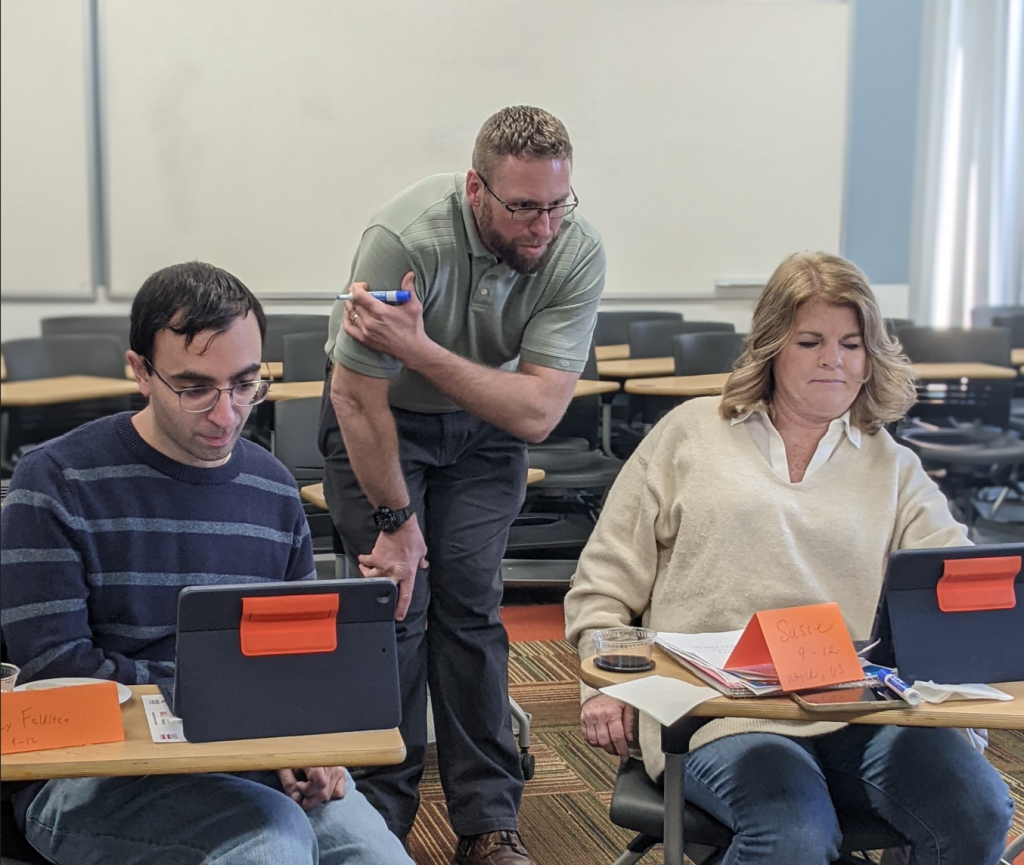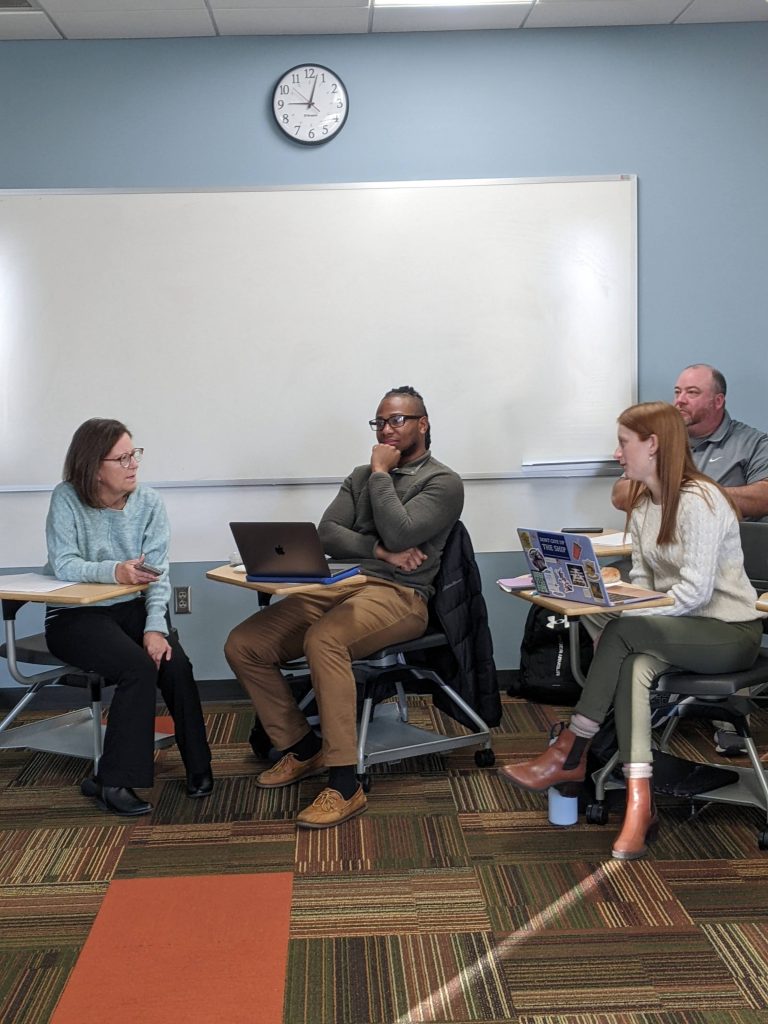By Becky Brown

Last Saturday, social studies teachers from Northwest Ohio traveled to BGSU for a professional development workshop: “Histories of Disease, Health, and Medicine.” Through speakers and discussion groups, teachers both broadened their knowledge of medical history and explored challenges and opportunities for applying this knowledge in the classroom.
Health and medical history immediately grab the attention of many middle and high school students. The workshop had the distinguished participation of specialist in medicine history, Michele Clouse of Ohio University. Dr. Clouse asserted that today’s students see their own experiences with the Covid-19 pandemic reflected in seemingly distant contexts, like medieval Europe. Exploring how people reacted and responded to numerous epidemics and health challenges helps students identify with people of the past and offers an avenue to sit with the hard questions posed by history. Just as students’ own experiences with health and disease are complicated, Dr. Clouse said the history of health can help students explore the idea that history is not about simplistic narratives. Dr. Scott Martin echoed this with his talk on patent medicines of the 19th century, which explored how advertising affected the perception around drug use and how public perception of a medication can shift dramatically and quickly.
Taking advantage of the Education Building’s active learning classroom, BGSU professors Art Lewandowski and Nancy Patterson put the teachers to work on a “standards treasure hunt.” Working quickly, teachers had to research and identify how some of the content they discussed in the workshop could be aligned with state learning standards to enrich their curriculum. The final speaker of the day was Michelle Sweetser, the Head Librarian at the Center for Archival Collections. Michelle presented some ways that teachers could make use of the CAC. From student field trips to reproduction documents to free, online resources on medical history, there are a wealth of possibilities.
Dr. Michael Kimaid, the primary organizer of the event, led small groups where teachers discussed their classroom experiences and shared advice on how to teach challenging topics. Through this combination of informal discussion and speakers, social studies teachers exchanged ideas and continued to develop their own professional expertise in this rapidly expanding subfield of historical inquiry.

